Description
ABSTRACT
The Construction of Ambiguous Gratuity Provisions: How the National Industrial Court of Nigeria Can Save the Hapless Employee
Victor Obinna Chukwuma*
The payment of gratuity by an employer to its staff is one of the best labour practices expected in any standard employment relationship. An employer that maintains a gratuity policy for its workers reflects the image of a typical twenty first century organization and would usually attract more respect and prestige than its defaulting contemporaries. Gratuity policies serve as incentives to workers which stimulate them to perform better for their employers with the hope that at the end of the employment, their services will be appreciated. However, in practice, cases abound where, upon the employee trying to enforce his employer’s gratuity policy, the question becomes whether he is truly entitled to the gratuity or how the gratuity is to be calculated. This will lead to parties debating the purport of the gratuity clause. The debate gets worse where the clause is inelegantly drafted, thereby subjecting its meaning to the conjecture of the parties. Where the dispute could not be settled amicably between the parties, the matter will usually be brought before the National Industrial Court of Nigeria (NICN) which by virtue of our laws, especially the Third Alteration Act, 2010, is ably imbued with the powers to adjudicate upon such matters. The purpose of this article is to examine how the NICN will likely resolve such cases in such a way that justice is seen to be done for both parties especially the hapless employee.
Keywords: Gratuity, Employer, Employee, National Industrial Court.
INTRODUCTION
Gratuity is simply a monetary benefit given by the employer to his employee at the end of the period of employment. It is an ex-gratia benefit usually granted at the discretion of the employer except for cases where there is a contractual or statutory obligation upon the employer to make such payment, in which case the employer is bound to comply therewith.1 It is a benefit plan where no contributions are made by the employee. The payment of gratuity accords with socio-economic justice and best labour practices by which retirees are given social security benefits to cushion postemployment hardship and to enable them to be self-sufficient and economically independent after the termination of their employment. Typically, gratuity is given to an employee as a form of gratitude for his long services, loyalty and contribution towards the employer’s organization and to serve as incentive to employees who are still in service.
* LL.B (Unizik), BL. Counsel at Adekunle Ojo & Associates, Ikeja, Lagos. Email: ob***********@***il.com, Tel: +2347069182735.
- See for instance the Indian Payment of Gratuity Act of 1972 (as amended in 2018), ss 1-4 by virtue of which payment of gratuity is compulsory for establishments with ten or more employees.

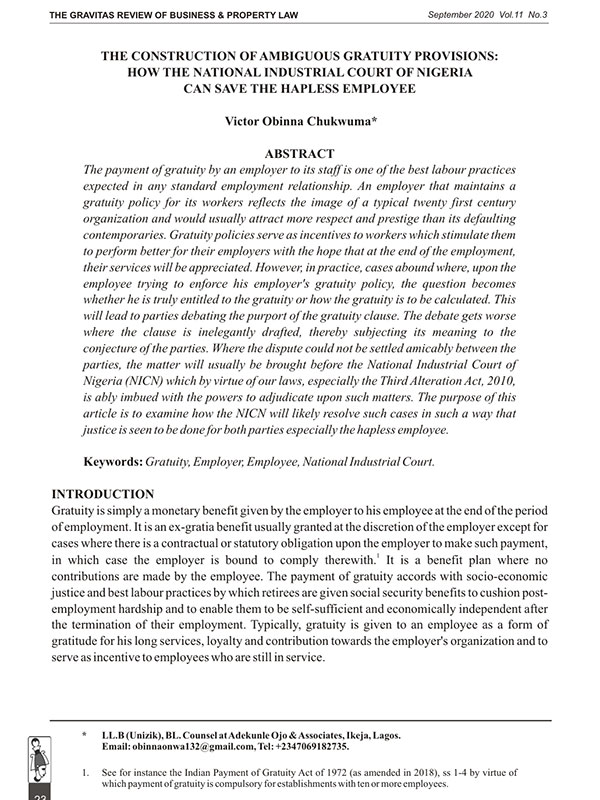
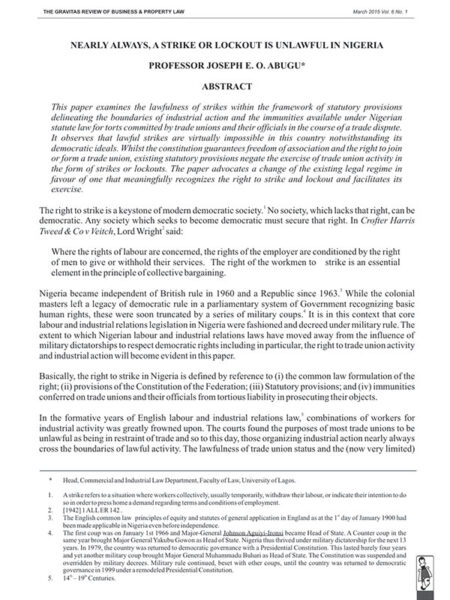
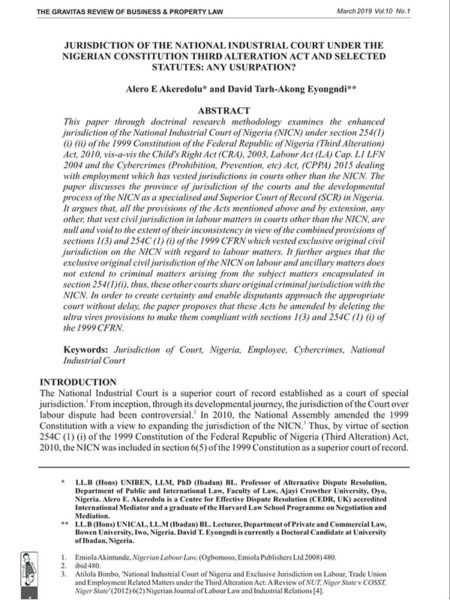
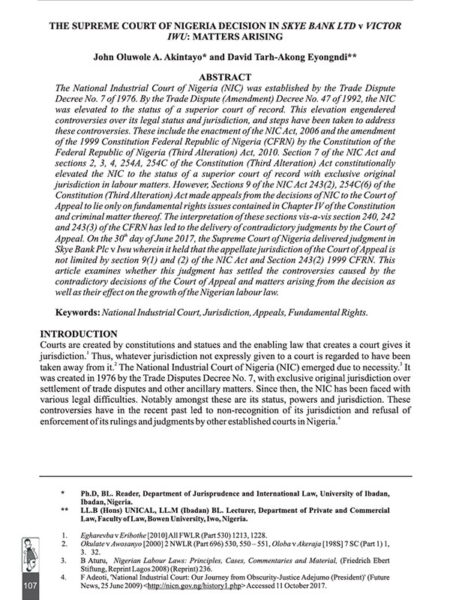
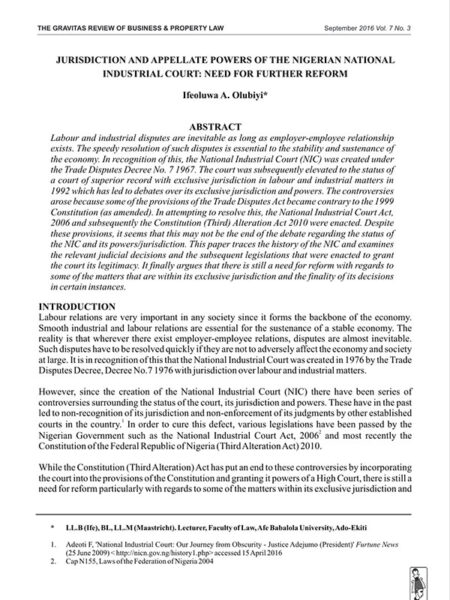


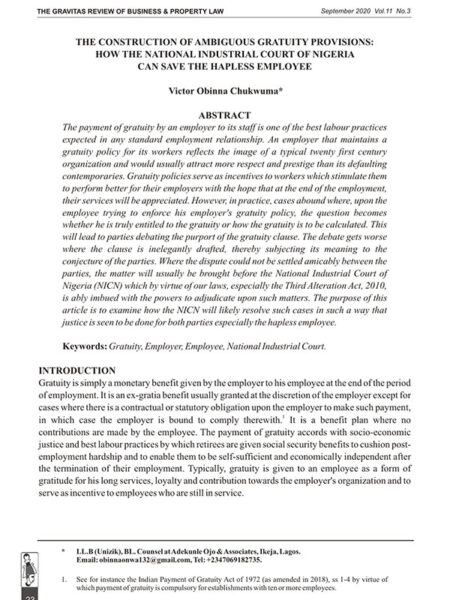
Reviews
There are no reviews yet.